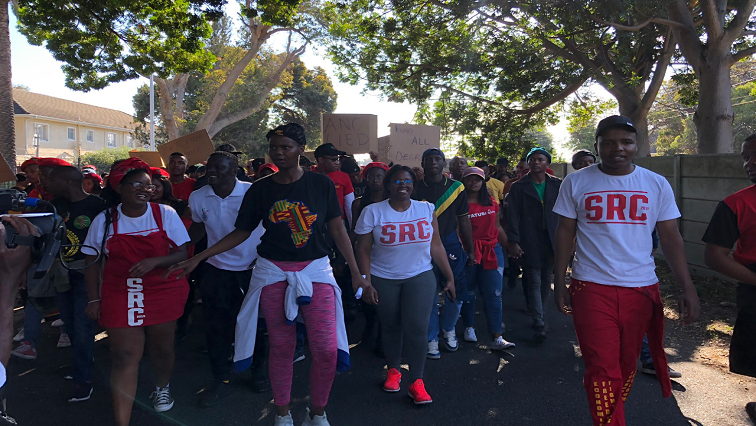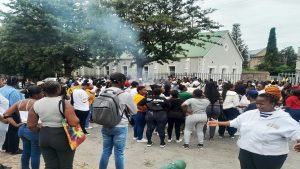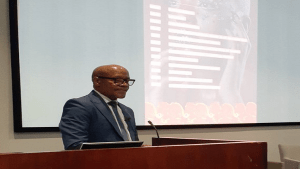Students from representative bodies of tertiary institutions across the country marched on the National Student Financial Aid Scheme offices in Cape Town. They are demanding, among others, writing off historical debt and regional offices for NSFAS.
Amongst the chief demands are the finalization of NSFAS appeals; allowances on time; scrapping of circular 6; withdrawn funding; regional NSFAS offices; and historic debt pic.twitter.com/LxS0yrkOk8
— South African Union of Students (@SAUS_2018) June 19, 2019
The students say these issues resurface repeatedly without any change.
Demanding action and effective change, the South African Union of Students (SAUS) Deputy President, Fasiha Hassan says NSFAS was never capacitated to deal with free education.
“We are looking at restructuring it, but doing so in a way that includes students as central decision makers. So, we are the ones that interact with NSFAS everyday and so, in many ways, I think we understand the system better than others; to have students and young people fundamentally a part of this restructuring and also to be heard. We’ve been raising the same issues. We are saying the same things every year and yet we don’t seem to be able to overcome them.”
Among the pressing issues highlighted are meal allowances for students, living at home and appeals of students to be addressed and finalised.
Student leader, Azania Tyhali says NSFAS is exclusionary and they want to see the implementation of policy.
“We are not here to negate the struggle for free education. Therefore, we are saying that what NSFAS needs to address are the current problems students have because we do understand. It was the loan that always made them to address student issues. So therefore, if it’s a loan, why not just give it to students who are going to pay it at the end because at the end of the day NSFAS gets paid by students when they get employment?”
NSFAS says it’s busy cleaning house and have improved its efficiency. Out of the 566 000 students that have qualified for support, 98% have received funding so far.
NSFAS Executive Administrator, Dr Randall Carolissen, says they have stabilised the student fund.
“We have stabilised NSFAS and we’ve arrested some of those controls that were not in place. We put in place policies and we have stabilised the systems. So for 2019, we are fairly comfortable that we are moving in the right direction and that we are now on a path of steep recovery.”
Carolissen says a future operating model focussed on how it’s positioned and how it liaises with stakeholders is key.






